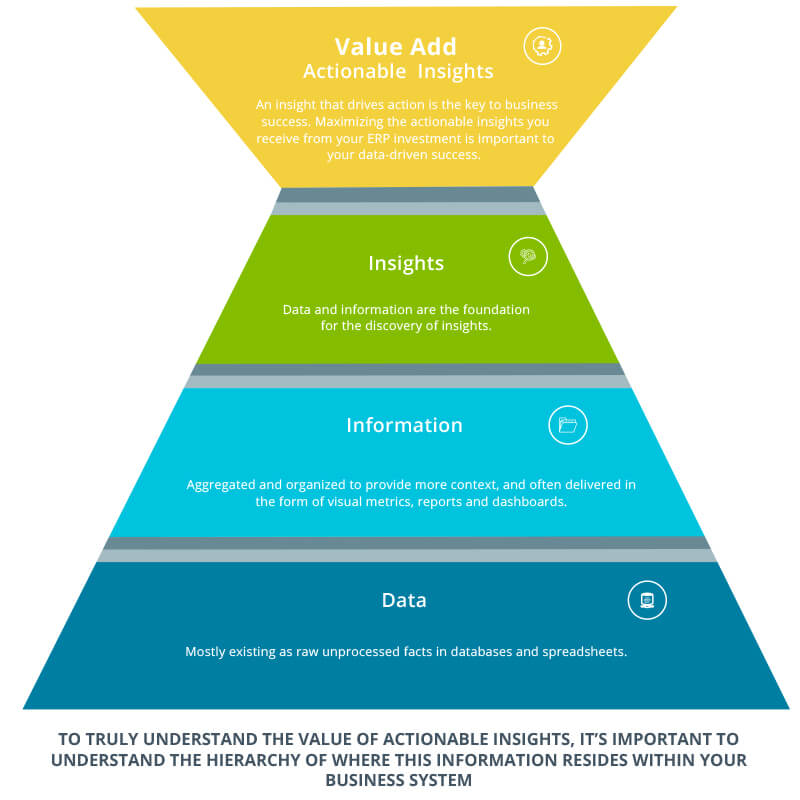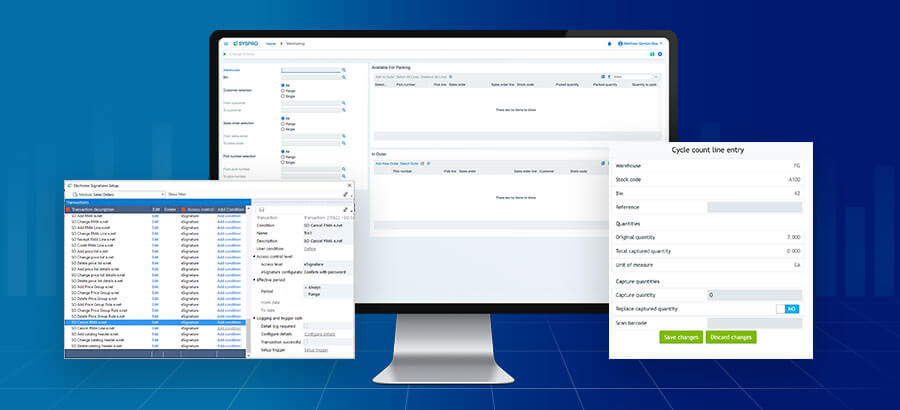How does Business Intelligence (BI) differ from ERP?
ERP systems essentially integrate all the disparate functions within your business and overcome the so-called ‘silo mentality’ by creating a single, centralized data architecture. The ERP software collects, stores and manages data relating to business activities. The principal output of ERP software is business efficiency and cost-savings.
BI and ERP are often confused as they operate together and their core definitions suggest a degree of overlap, yet they differ significantly.
ERP collects the enterprise data while Business Intelligence analyzes the enterprise data and uses dashboards and other interfaces to present that data in ways that make it easily understood and helps identify actionable opportunities.
The right ERP system will make your business more organized and radically streamline your administrative functions. Applying the correct Business Intelligence tools to this data for data analysis, trends and forecasts makes the combination invaluable.

What’s Your Business IQ?
Since its inception in the late 1990s, Business Intelligence (BI) has become something of a buzzword. But what exactly is it, and where does it fit in with your ERP systems?
The first widely accepted definition of Business Intelligence was coined by Howard Dresner, who described it as the “concepts and methods to improve business decision-making by using fact-based support systems.” In simple terms, Business Intelligence refers to the analysis of business information and the information it provides – the assessing and understanding of enterprise data for the purposes of generating information about operations and strategy, by identifying key trends, strengths and weaknesses.
Today, Business Intelligence is understood as the gathering, storage and analysis of business data. It is also referred to as ‘knowledge management’. The Business Intelligence technologies are engineered to mine datasets with a view to uncovering opportunities that might not otherwise be apparent.
How Business Intelligence (BI) can help Your Enterprise
Business intelligence essentially transforms raw data into actionable knowledge. It enables a business to understand its markets and customers at a much deeper level and can provide meaningful metrics such as ROI for marketing spend.
This facilitates personalized product or service offerings, leading to greater brand loyalty and more engaged customers. Insights learned through the application of Business Intelligence develop better business processes like improved supply chain management and more efficient marketing strategies. Business intelligence ultimately drives improved business effectiveness.
Complementary Technologies
It’s clear that your ERP and your BI system are not the same. Rather, they work together to convert your data into information and knowledge about your business, transforming your enterprise into a data-led growth engine.
With ERP software organizing your business data, Business Intelligence technologies can mine this data and present it in easily digestible and actionable formats. ERP and BI have a symbiotic relationship – BI requires an ERP in order to function, while the value of ERP software is significantly enhanced when it is paired with BI.
If you’re already taking advantage of the efficiency and effectiveness of ERP, it is time for your enterprise to consider the next addition and add Business Intelligence to analyze the data and present it in ways that allow informed decision-making both easier and more effective.
ERP systems can make your business run better today; but with the added functionality of Business Intelligence, they can prepare your business for the future by providing you with the insights you need.
Future proof your business with confidence, your competitors have probably future-proofed theirs already!
To paraphrase Albert Einstein, “Business Intelligence without ERP is blind”, yet together, they can enable you to see much further and so much more…






